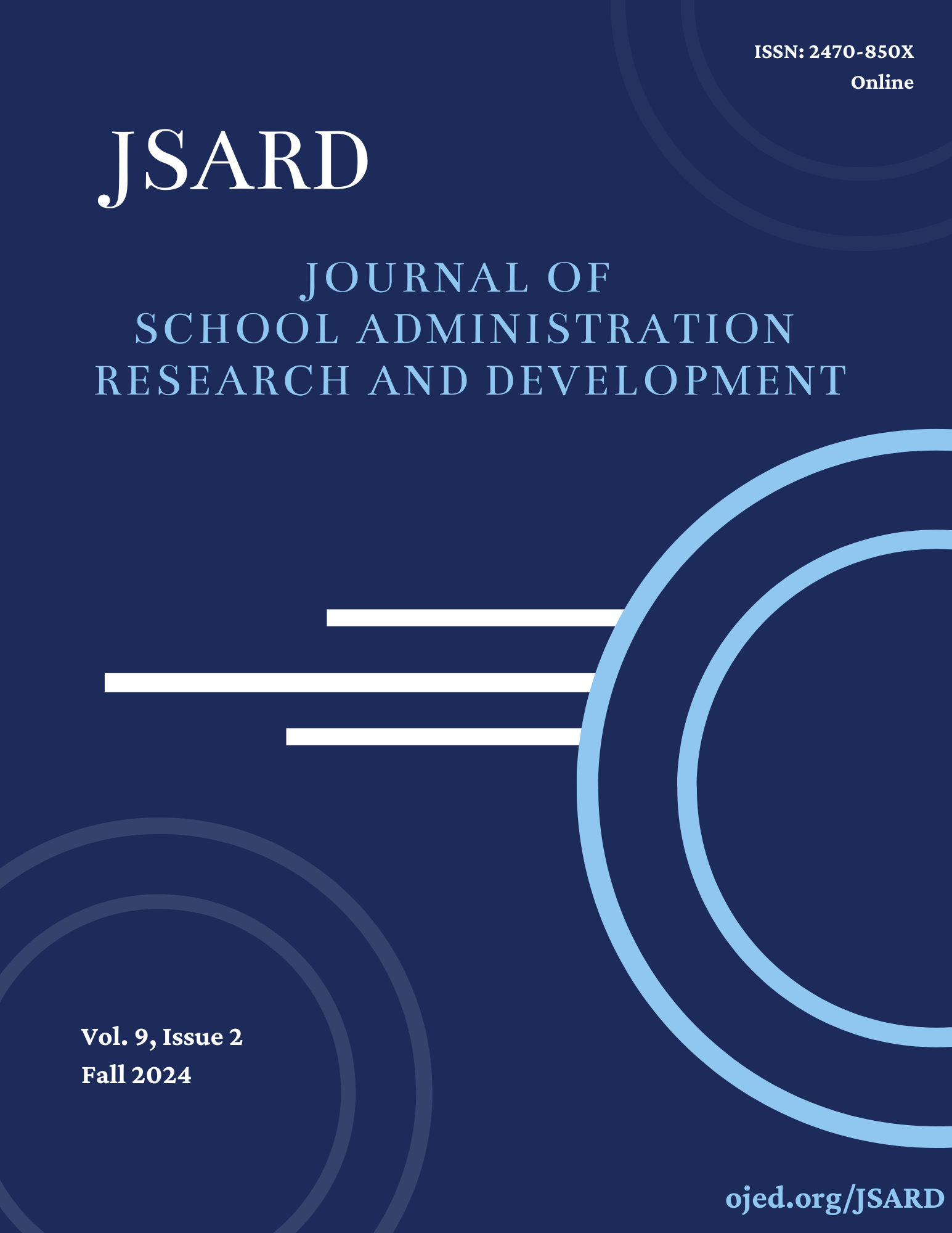Exploring Suggestions from Educational Leaders and ChatGPT for Addressing Problems of Practice in TeleED
A Qualitative Case Study
DOI:
https://doi.org/10.32674/k99grq33Keywords:
TeleEd, ChatGPT, AI, Exploratory Research, Educational LeadersAbstract
Educational leaders are faced with multi-faceted dilemmas that place decision-making at the heart of their day-to-day work. For support, they often turn to collaborative networks of experienced educators, such as Project ECHO, for solutions to address challenges they encounter while working in the field. The availability of generative AI technology, however, may have potential for informing the solutions to complex educational dilemmas as well, saving time and offering efficiency for problem solving. This study compares solutions for three problems of practice (PoP) that were generated through ChatGPT software and those proposed by the educational leaders in TeleED, an online professional development platform. The problem of practice in this study refers to complex, real-world challenges or problems shared by educational leaders. Findings indicate that solutions to these PoPs showed similarities, suggesting that both ChatGPT and the educational leaders in TeleED highlight ideas such as documentation and peer mentoring to address challenges. This reflects ChatGPT’s ability to generate applicable solutions to complex problems that somewhat mirror solutions posed by leaders. However, educational leaders offered solutions that were nuanced, context specific, and contained explanations of resources and experiences that enhanced discussions. Findings suggest that ChatGPT may have utility for enhancing decision-making but not replacing the human element.
Downloads
References
Cranston, N., Ehrich, L. C., & Kimber, M. (2006). Ethical dilemmas: The “bread and butter” of educational leaders' lives. Journal of Educational Administration, 44(2), 106–121.
Curry, K. A., Jean-Marie, G., & Adams, C. M. (2016). Social networks and parent motivational beliefs: Evidence from an urban school district. Educational Administration Quarterly, 52(5), 841–877.
Curry, K., Kinder, S., Benoiton, T., & Noonan, J. (2018). School board governance in changing times: A school’s transition to policy governance. Administrative Issues Journal, 8(1), 1–17.
Curry, K., Harris, E., Olsen, J., Kim, Y., & Egure, D. (2023). TeleNGAGE: Enhancing collaboration between families and schools. Current Issues in Education, 24(1).
Delcker, J., Heil, J., Ifenthaler, D., Seufert, S., & Spirgi, L. (2024). First-year students AI-competence as a predictor for intended and de facto use of AI-tools for supporting learning processes in higher education. International Journal of Educational Technology Higher Education, 21(18). 1–13. https://doi.org/10.1186/s41239-024-00452-7
Duha, M. S. U. (2023). ChatGPT in education: An opportunity or a challenge for the future? TechTrends, 67(3), 402–403.
Egure, D. S., Curry, K., Fiegener, A. M., Kim, Y., & Akinrinmade, B. (2023). TeleNGAGE: Promoting transformative equitable collaboration between families and schools. School Community Journal, 33(1), 87-110.
Fullan, M., Azorin, C. and Harris, A. (2023). Artificial intelligence and school leadership: Challenges, opportunities and implications. School Leadership and Management, 1-8. https:///doi.org/10.1080/13632434.2023.2246856.
Hackman, M. Z., & Johnson, C. E. (2013). Leadership: A communication perspective. Waveland press.
Hamzah, M. I. M., Juraime, F., Hamid, A. H. A., Nordin, N., & Attan, N. (2014). Technology leadership and its relationship with school-malaysia standard of education quality (School-MSEQ). International Education Studies, 7(13), 278-285.
Harris A. (2013). Distributed leadership: Friend or foe? Educational Management Administration and Leadership, 41(5), 545–554. https://doi.org/10.1177%2F1741143213497635
Kalla, D., Smith, N., Juraku, S., & Smash, F. (2023). Study and analysis of Chat GPT and its impact on different fields of study. International Journal of Innovative Science and Research Technology, 8(3). 826–833.
Lee, H. (2023). The rise of ChatGPT: Exploring its potential in medical education. Anatomical Sciences Education. 00. 1-6. https://doi.org/10.1002/ase.2270open_in_new
Long, D., & Magerko, B. (2020, April). What is AI literacy? Competencies and design considerations. In Proceedings of the 2020 CHI conference on human factors in computing systems (pp. 1–16).
Merton, R. K. (1973). The sociology of science: Theoretical and empirical investigations. The University of Chicago.
Mumford M. D., Peterson D., Robledo I., Hester K. (2012). Cases in leadership education. Implications of human cognition. In Snook S., Nohria N., Khurana R. (Eds.), The handbook for teaching leadership. Knowing, doing, and being (pp. 21–33). Sage Publications.
Oranga, J. (2023). Benefits of artificial intelligence (ChatGPT) in education and learning: Is ChatGPT helpful. International Review of Practical Innovation, Technology and Green Energy. 3(3), 46–50.
Park, V., & Datnow, A. (2009). Co-constructing distributed leadership: District and school connections in data-driven decision-making. School Leadership and Management, 29(5), 477–494.
Ross, D. L. (2023). Purpose, preparation, and perseverance: A phenomenological case study for a principal efficacy framework in high-performing, high-poverty elementary schools. Journal of Research on Leadership Education, 18(4), 555–574.
Saldana, J. (2013). The coding manual for qualitative researchers. Sage.
Swartz, N., & Benz, C. (2022). School (Dis) Connectedness during comprehensive distance learning. Journal of School Administration Research and Development, 7(2), 83-92. https://doi.org/10.32674/jsard.v7i2.3630
Swedberg, R. (2020). Exploratory research. In C. Elman, J. Gerring, & J. Mahoney (Eds.), The production of knowledge: Enhancing progress in social science (pp. 17–41). Cambridge University Press.
Tyson, M. M., & Sauers, N. J. (2021). School leaders' adoption and implementation of artificial intelligence. Journal of Educational Administration, 59(3), 271-285.
Downloads
Published
Issue
Section
License
Copyright (c) 2024 Journal of School Administration Research and Development

This work is licensed under a Creative Commons Attribution-NonCommercial-NoDerivatives 4.0 International License.
All published articles are licensed under a Creative Commons Attribution-NonCommercial-NoDerivs 4.0 Unported License.


.png)
